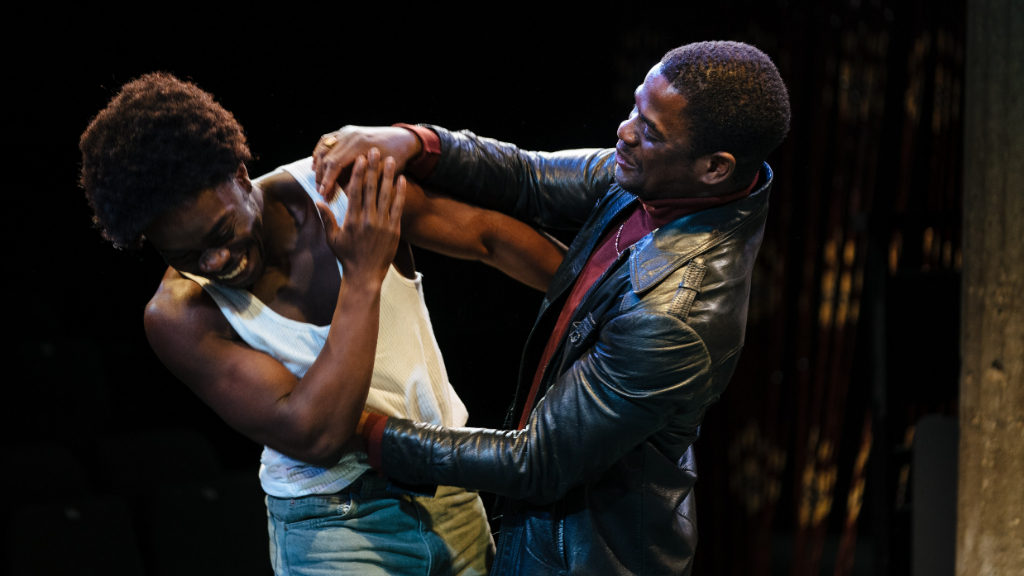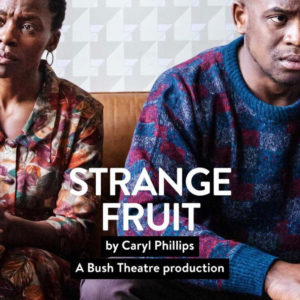Strange Fruit at Bush Theatre

In The Unpassing, Chia-Chia Lin has her main character, the child of Taiwanese immigrants in the US, state that “it was a kind of violence, what my father had done. He had brought us to a place we didn’t belong, and taken us from a place we did. Now we yearned for all the places and found peace in none.” Such sentiment haunts the sons in Caryl Phillips’s Strange Fruit. One desperate to return to the “homeland”, to escape the boot of racist Britain; the other, back from the worst two weeks of his life in the West Indies, rejected by the people who are meant to be his family, at a loss as to what his black identity means.
Errol (Jonathan Ajayi) is desperately awaiting the return of his brother. In his absence he berates his mother Vivian (Rakie Ayola) and white girlfriend Shelley (Tilly Steel) while planning a strike as part of the Black Front, lecturing on his leadership aspirations, envisaging himself a Malcolm X or Huey P Newton. But when Alvin (Tok Stephens) does arrive he comes burdened by secrets and a shattered sense of self, incompatible with Errol’s aims.
There is a lot to, and of, Strange Fruit. The play is broadly made up of a series of long, dense two-handers. Director Nancy Medina hasn’t found a good way of theatricalising the script, instead presenting the lengthy tête-à-têtes pretty much as is. The only real flirtation with something more is the use of a shallow carpeted pit at the centre of Max Johns’s space, a visual indication of the power dynamics of each scene.
It’s not that the contents of the piece is lacking, especially when it comes to Errol. Ajayi fully makes the contradictions of the character felt. He (not unjustly) hates white society but has a white girlfriend, a fact that dominates their conversations. His every interaction is filled with a virulent strain of misogyny. Yet it is also clear he has mental health issues rooted in his treatment at the hands of a country that doesn’t want him, not so much close to a breakdown as actively experiencing one. He is an unpredictable, deeply sad and difficult character, matched in every way by Ajayi’s performance.
He’s not alone. Stephens is particularly great in the scene that takes up the first half of the second act, a believably brotherly reunion that sours as Alvin’s newfound uncertainties are voiced. As Vernice, Debra Michaels goes beyond neighbourly comic relief. Steele captures the youth and misplaced love of Shelley. And Ayola – nervous and fearful in front of her sons, clinging onto a lethal idea of white respectability – has a multitude of devastating moments as Vivian, not least the story of the first time she saw snow.
However, even with some great acting, it’s hard to shake the sense that the three-hour play might work better on paper. That, or in a production more willing to liven up the presentation of its weighty dialogues.
Connor Campbell
Photos: Helen Murray
Strange Fruit is at Bush Theatre from 12th June until 27th July 2019. For further information or to book visit the theatre’s website here.
























Facebook
Twitter
Instagram
YouTube
RSS